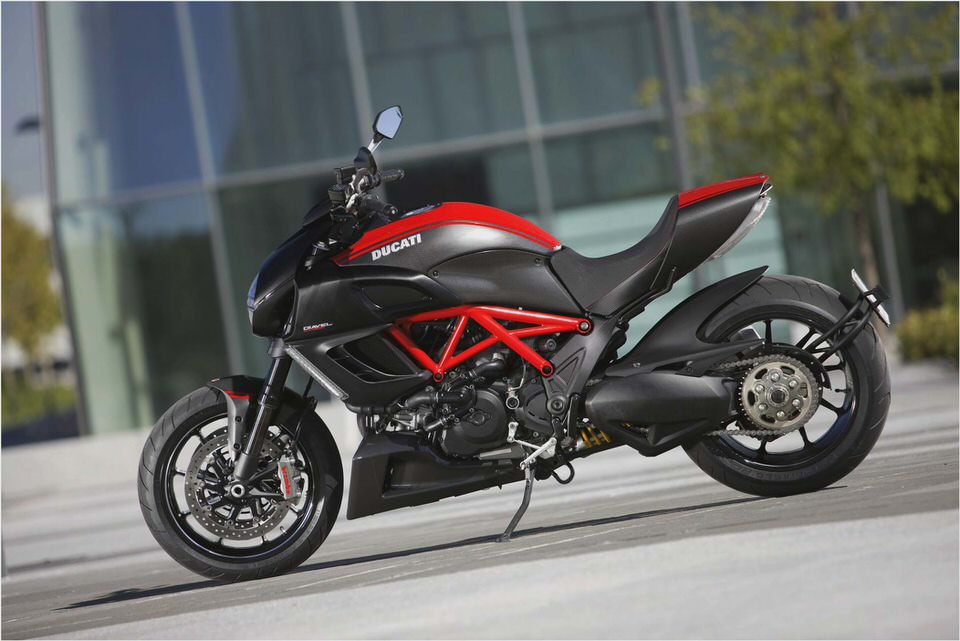
The cruiser of today is stuck in the image of the past. This means all cruisers must have chrome, retro styling and lolloping V-Twins, even if the rest of their lineup doesn’t fit that aesthetic. But what if the cruiser wasn’t stuck in the past?
What if a brand wasn’t satisfied with the notion that comfort didn’t have to come at the expense of speed? Ducati, a brand built on their racing heritage, has decided to challenge the cruiser status quo with the Diavel. In the process, chrome has been replaced with carbon fiber.
When the Diavel first debuted, many people saw it as a brand expansion that had gone one step too far. Here was Ducati’s “Cayenne moment” – that moment in time where a brand sells itself on its image instead of its product. However, that would be true only if the Diavel was a bike that did not live up to Ducati’s performance heritage. And it not only meets the bar, but exceeds it.
With the Diavel, Ducati has redefined the cruiser segment instead of the other way around, and created the essential urban assault weapon.
Devilish Looks
You can tell that this is not your grandfather’s cruiser just by looking at it. In pictures, the Diavel seems ungainly and large, but in person the size is compact and squat. On paper, it looks disjointed and wrong, but all the details look cohesive in person. The Diavel seems like it is bursting at the seams while sitting still; like a pit bull, all muscle and power.
So it has the traditional cruiser aesthetic of looking tough while sitting still, but it does this with a completely modern design.
Not to mention that detailing is exquisite. On this Carbon model, the tank and rear seat cover is actual carbon fiber. Where one would find plastic on most bikes, the Diavel has milled aluminum. The Diavel also boasts Marchesini wheels that not only look good, but cut unsprung weight. And the rear wheel is showcased by Ducati’s hallmark single-sided swingarm.
Everything on this bike not only fits the cruiser aesthetic, but helps the bike perform better.
The fact is that the Diavel manages to stand out, but looks like it belongs, in every place you take it to. I picked up the Diavel at Chicago Motoworks, a dealer in the heart of Chicago that offers Ducati, Triumph and Vespa scooters. From there, I was taken on a tour of the city from biker bars to upscale restaurants on the gold Coast, and everywhere in between. The feedback from others was always positive.
Even a guy in a Prius shot a thumbs up. You can’t take a traditional cruiser into the heart of a modern city without looking a touch old-fashioned, but this is no problem on the Diavel. Conversely, showing up to a biker bar on a sport bike is a faux pas, but not on the Diavel. A cruiser is supposed to attract attention and the Diavel does so without conforming to the traditional aesthetic tropes that accompany the segment.
Not to mention, with advanced electronics and impressive ergonomics, it’s actually comfortable in the inevitable city traffic instead of crippling.
Wicked Performance
The first warning of the bike’s performance is the start-up sound. NASCAR engine meets Moto GP, the 11 degree, 1200cc V-Twin Testratta engine has a sound all its own, not to mention that it is alarmingly loud; so much so that I thought that the tester had been fitted with aftermarket pipes, but I was mistaken. The engine emits a rumble that can be heard before the bike is seen. So even though the tester was painted like a stealth fighter, it managed to constantly stand out.
Most bikes sound absolutely neutered with the factory pipes, so if Ducati can get away with this sound from the factory, then there is no excuse for anyone else. However, there were often times were I would have liked the subtlety that comes with quieter pipes. The sound of the exhaust is just a teaser of the performance behind the sound though.
Acceleration of the Diavel is particularly brutal. The V-Twin produces 162hp and a massive 94lb-ft, but this doesn’t tell the whole story. Unlike in a sportbike, the engine on the Diavel is much lower, leading to a lower center of gravity, which in non-technical speak means Saturn V rocket thrust everywhere.
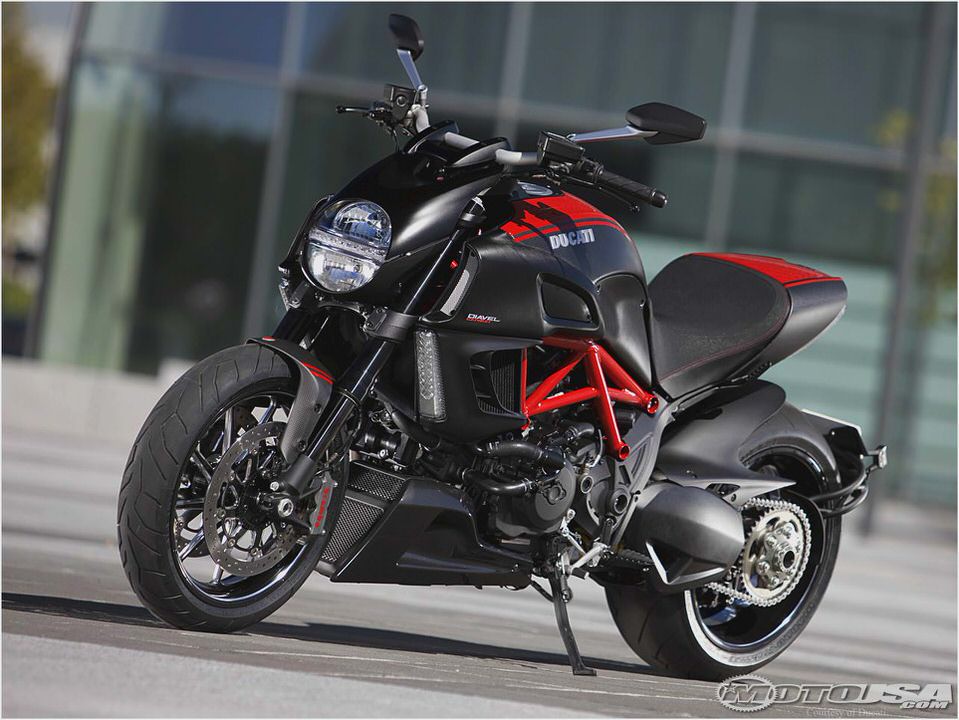
Where superbikes want to wheelie, the Diavel lays the power down and accelerates out. This is not only confidence boosting around town, but means that in many cases, you can be quicker than just about anything off the line. Ducati claims a 0-60 time of 2.5 seconds, and I will take their word for it.
Massive acceleration isn’t the only bike’s talent either. The ingredients for the braking and handling are Marzocchi forks up front, Sachs adjustable unit in the back, and Brembo brakes in the front and rear. The result is a bike that handles and stops like no other cruiser. The Diavel leans over and responds in a clear direct manner. Lean angles that are normally a problem on a cruiser are no issue on the Diavel.
Steering is quicker and confident. Plus, the low center of gravity that aids the bikes acceleration helps slow it down as well. The most surprising feature is that the big rear wheel, a custom 240/45-17 Pirelli Diablo Rosso II rear radial, does not hinder performance an iota. Pirelli took special care to make sure that the Diavel responds to inputs just as well as Ducati’s other offerings even though the rear tire is really wide, and it works.
With this agility and incredible braking, you have a confidence inspiring machine that is a relief to have when riding conditions can change in a millisecond when riding around dense urban centers.
The Diavel also has a host of advanced electronic controls to keep all that power in check. Three riding modes are available (Touring, Urban and Sport) that adjust fuel maps to deliver more torque lower in the rev range (Urban) or full power with the least amount of rider aids (Sport). The system is also fully adjustable so you can manage how much traction control you want in each setting (1- the last amount, to 8).
All of this is managed through the dashboard on the bike with controls on the left steering wheel. Motorcycles are all about simplicity, so getting used to an extra set of controls is a little tough at first, but is pretty intuitive with practice. You can adjust all the parameters while moving, but with 162HP between your legs, I would suggest not doing that.
Comfortable Cruising, Crushing Performance
Add all of these elements together and you get the best motorcycle for urban riding. Jaw-dropping looks, brutal performance and the comfort of a cruiser. The ergonomics are well laid out, and even the seat is comfy. The real question is, if you aren’t going to take a superbike to the track, why not buy a Diavel and be just as fast and be comfortable?
The Diavel competes on paper with the Harley-Davidson V-Rod and the Star V-Max, but it is a different animal altogether. It boasts more technology, weighs less, and has riding dynamics that are heads and tails above the others. Plus, prices start at $17,495 ($19,995 as tested), so it actually splits the difference in price between the Harley and the Star. But more importantly, it’s a Ducati first and a cruiser second.
All the hallmarks of Ducati’s lineup are present (performance, looks, 90 degree V-Twin), but in a new package. In doing so, Ducati has brought the cruiser back into the 21st century.
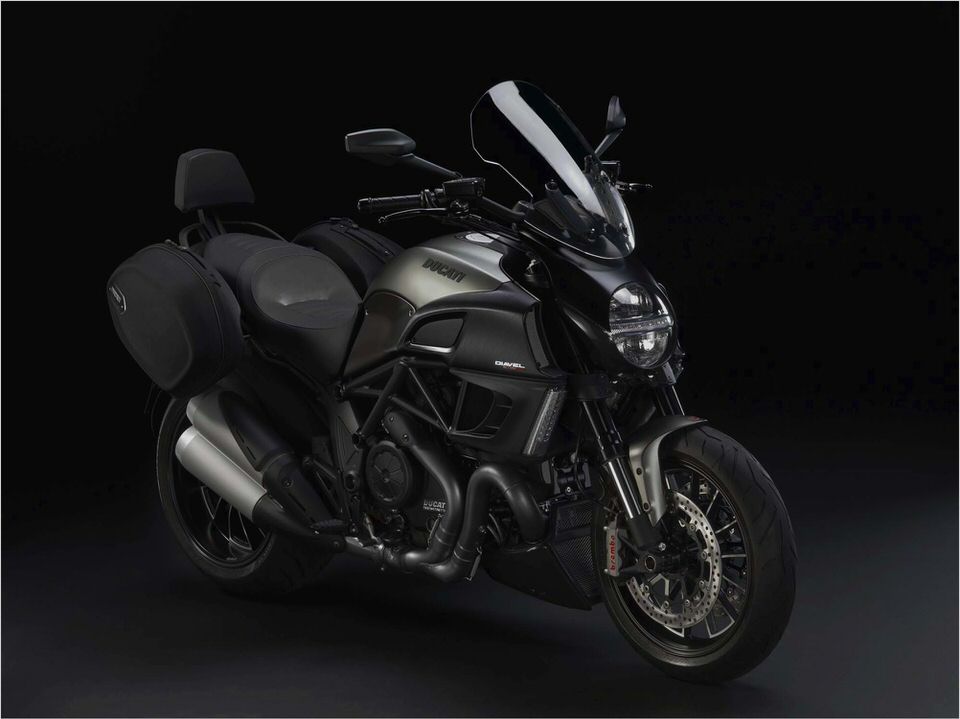
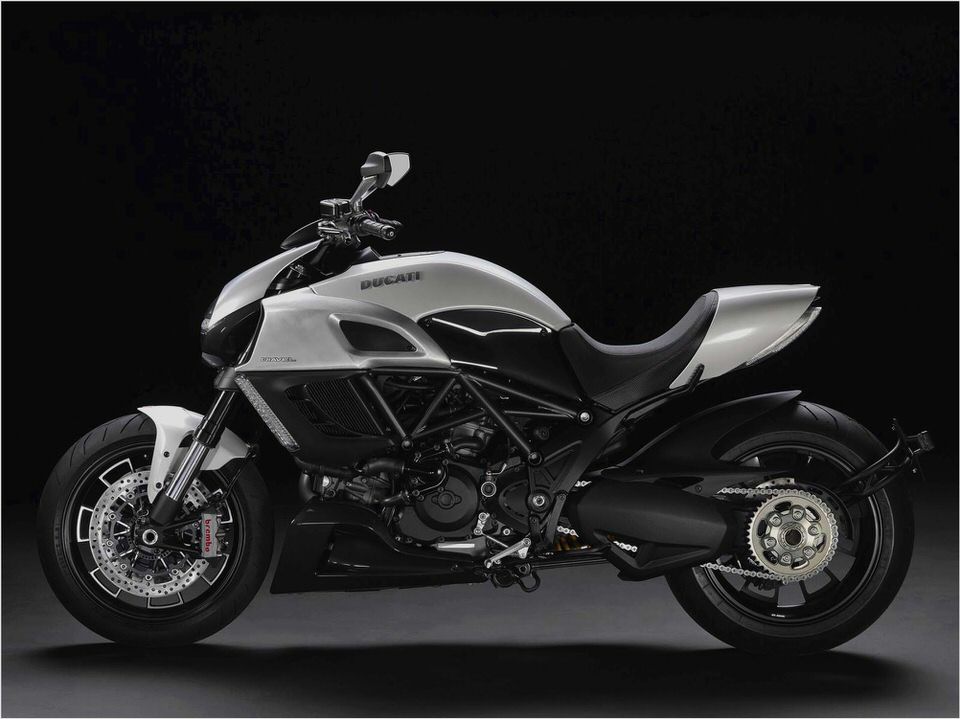
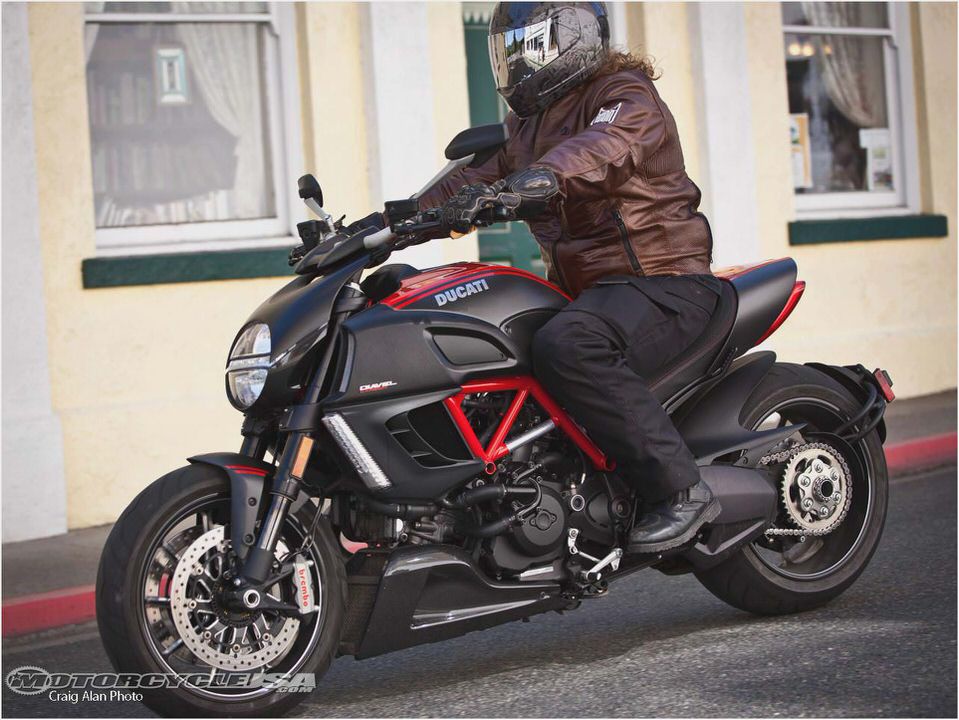
- Ducati Sport 1000 Vs. Triumph Thruxton – Cafe Racer Comparo – Motorcyclist…
- Used 2012 Ducati 848 EVO – Reviews, Prices and Specs at Motorcyclist Magazine
- Ducati: Desmo Valves History – Ultimate MotorCycling
- Phillip Island MotoGP Test: Strong start and a few scares for Crutchlow…
- Ducati 900SS CR Supermono Ducati SuperSport
